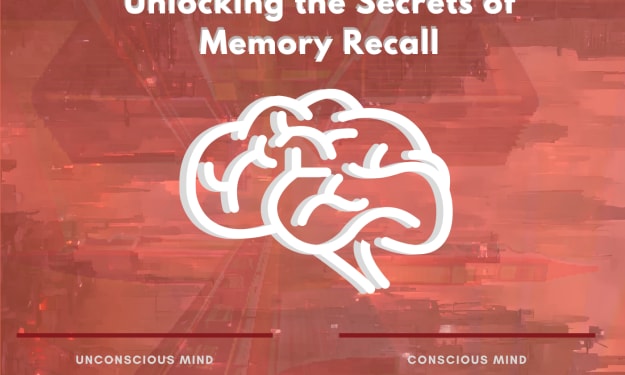Unlocking the Secrets of Memory Recall
Techniques and Scientific Insights: Chapter One

Introduction:
In this blog post, we will delve into the fascinating world of memory recall. Whether you’re a student preparing for exams, a professional striving for better cognitive performance, or someone looking to sharpen your memory skills, this blog post has some value to offer. We will explore techniques for improving memory recall and provide scientific insights into how our memory works In Chapter One.
The Science of Memory Recall:
Our memory is a complex and intricate system that allows us to store and retrieve information. Understanding the science behind memory recall can provide valuable insights into how we can improve this cognitive function.
The process of memory recall involves several stages. It begins with encoding, where information is initially acquired and processed by brain. The encoded information is then stored in our memory, ready to be retrieved when need them. When we attempt to recall a specific memory, our brain enter the retrieval stage.
Different types of memory play specific roles in our recall abilities. Short-term memory, also known as working memory, allows us to temporarily hold and manipulate information. Long-term memory, on the other hand, stores information over extended periods, providing the foundation for our knowledge and experiences.
The brain regions responsible for memory recall include the hippocampus and the prefrontal cortex. The hippocampus plays a crucial role in consolidating and retrieving memories, while the prefrontal cortex is involved in higher-order cognitive processes, such as attention and decision-making.
Neurotransmitters, chemical messengers in the brain, also play a vital role in memory formation and retrieval. For instance, acetylcholine has been linked to learning and memory processes, while dopamine is associated with motivation and reward, which can influence memory performance.
Understanding the science behind memory recall provides a foundation for implementing effective techniques to improve our memory abilities.
In the next part, we will explore various techniques that can help enhance memory recall.
Techniques for Improving Memory Recall
Memory Mnemonics:
Mnemonic devices are powerful tools for improving memory recall. These techniques involve creating associations or visualizations to aid in remembering information. For example, when trying to remember the order of the planets in our solar system (Mercury, Venus, Earth, Mars, Jupiter, Saturn, Uranus, Neptune), you can use the mnemonic “My Very Educated Mother Just Served Us Noodles.” This acrostic represents each planet’s initial letter and makes it easier to recall the sequence.
Spaced Repetition:
This technique involves reviewing information at spaced intervals over time. Instead of cramming all the information at once, spaced repetition utilizes the spacing effect, which suggests that spacing out learning sessions improves long-term retention. For instance, when studying for exams, you can create a study schedule that includes reviewing previously learned material at specific intervals. By revisiting the content periodically, you reinforce your memory and facilitate better recall during exams.
Chunking:
Breaking information into smaller, manageable chunks can enhance memory recall. For example, when trying to remember a long sequence of numbers, such as a phone number or credit card number, you can group the digits into smaller segments. Instead of trying to remember “5678138492” as a single string, you can chunk it into “567–813–8492” or “5678–1384–92.” This grouping makes the number more memorable and easier to recall.
Mindful Learning:
Practicing mindfulness during the learning process can significantly enhance memory recall. Mindfulness involves paying deliberate attention to the present moment without judgment. For example, when studying, find a quiet and distraction-free environment. Engage all your senses in the learning process by focusing on the text or material you’re studying. Avoid multitasking and immerse yourself fully in the subject matter. By being fully present and engaged, you enhance memory encoding and improve recall during exams or when needed.
By incorporating these techniques into your learning and daily routines, such as using mnemonic devices, spaced repetition, chunking, and mindful learning, you can boost your memory recall abilities.
Experiment with different methods and find the ones that work best for you.
Chapter one Ends here. In the upcoming segment, “we will explore common challenges and provide strategies for overcoming memory lapses", also we will explore ‘’Freudian techniques to enhance memory recalling’’ and lots more.
Thanks Everyone,
Alexxmarcer
About the Creator
Alexxmarcer
In the vast realms of the digital expanse, a passionate mind words with grace. Introducing "Alexxmarcer" a diligent soul embarked upon the realm of VOCAL...






Comments (1)
Very Interesting